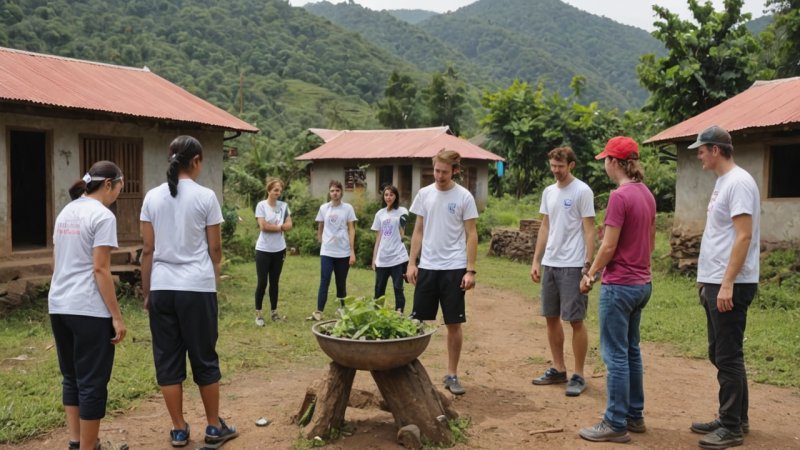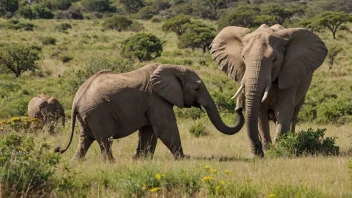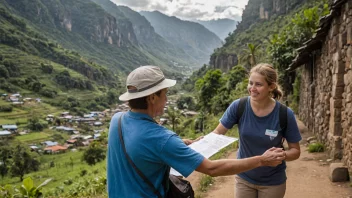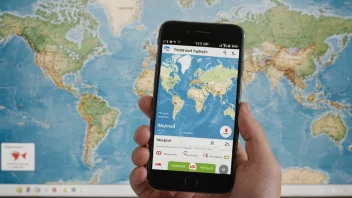Volunteer travel is a unique and fulfilling way to experience new cultures while making a positive impact on communities around the globe. For those seeking adventure beyond the usual tourist trails, remote areas present an exceptional opportunity. These lesser-known destinations offer not only breathtaking landscapes and rich traditions but also the chance to engage with local populations in meaningful ways. Whether you are helping to build infrastructure, teaching English, or working on conservation projects, the experiences gained in these areas can be life-changing. This article dives into the essence of volunteer travel in remote areas, exploring the benefits, challenges, and unforgettable experiences you can expect.
The Allure of Remote Areas
Remote areas often evoke images of untouched nature, vibrant cultures, and a slower pace of life. These destinations, whether nestled in the mountains, deep in the jungle, or along secluded coastlines, hold a certain charm that attracts adventurous souls. Volunteers in these regions can enjoy the serenity of nature while engaging with communities that may have been overlooked by mainstream tourism. The opportunity to immerse oneself in a new environment enhances the travel experience, allowing for deeper connections with the land and its people.
Benefits of Volunteer Travel
Engaging in volunteer travel brings numerous benefits, not only to the communities served but also to the volunteers themselves. Here are some of the key advantages:
- Cultural Exchange: Volunteers have the chance to learn from local traditions and customs, fostering mutual understanding and respect.
- Personal Growth: Stepping out of one’s comfort zone in a new environment promotes self-discovery, resilience, and adaptability.
- Skill Development: Volunteers can acquire new skills or enhance existing ones, such as language proficiency, teaching, or technical abilities.
- Networking Opportunities: Meeting like-minded individuals and local professionals can lead to lifelong friendships and potential career opportunities.
- Environmental Impact: Many volunteer projects focus on conservation and sustainability, allowing participants to contribute positively to the environment.
Challenges to Consider
While the rewards of volunteer travel in remote areas are plentiful, it is essential to be aware of the challenges as well. Understanding these hurdles can help prepare volunteers for a successful experience:
- Limited Resources: Remote areas often lack basic amenities, including reliable internet, medical facilities, and transportation options.
- Cultural Barriers: Language differences and unfamiliar customs may lead to misunderstandings or feelings of isolation.
- Physical Demands: Many volunteer projects involve manual labor or physically demanding tasks, requiring a certain level of fitness and stamina.
- Emotional Challenges: Witnessing poverty or hardship can be emotionally taxing, and volunteers must be prepared to cope with these feelings.
- Safety Concerns: Volunteers must remain vigilant about their safety, especially in areas with political instability or health risks.
Unique Experiences to Pursue
One of the most fulfilling aspects of volunteer travel is the unique experiences that come with it. Here are a few opportunities that volunteers can seek out in remote locations:
- Conservation Projects: Engage in wildlife protection or habitat restoration efforts in places like the Amazon rainforest or African savannas.
- Community Development: Work with local organizations to build schools, clinics, or water systems in underserved areas.
- Teaching English: Help improve literacy and educational opportunities by teaching English in remote villages.
- Agricultural Initiatives: Assist local farmers with sustainable farming practices or organic agriculture projects.
- Healthcare Outreach: Provide medical assistance or health education in communities with limited access to healthcare.
How to Prepare for Your Journey
Preparation is crucial to ensure a successful and rewarding volunteer travel experience. Here are some steps to consider before embarking on your journey:
- Research Opportunities: Look for reputable organizations that focus on volunteer work in remote areas. Read reviews and connect with past volunteers if possible.
- Understand the Culture: Familiarize yourself with the local customs, languages, and societal norms to enhance your cultural sensitivity.
- Pack Wisely: Bring essential items, including appropriate clothing, personal items, and any necessary tools for your volunteer work.
- Get Health Insurance: Ensure you have adequate health coverage, including vaccinations and medications suited for the area you’ll be visiting.
- Stay Flexible: Be prepared for changes in plans and remain open to unexpected cultural experiences.
Conclusion
Volunteer travel in remote areas is a profound way to explore the world while making a lasting impact. The combination of adventure, cultural immersion, and community service creates unforgettable memories and personal growth. While challenges exist, the rewards of helping others and experiencing unique cultures far outweigh the difficulties. As you consider your next travel plans, think about the possibility of giving back while discovering the beauty of remote destinations. The journey you embark upon could change not only the lives of those you serve but also your own.






